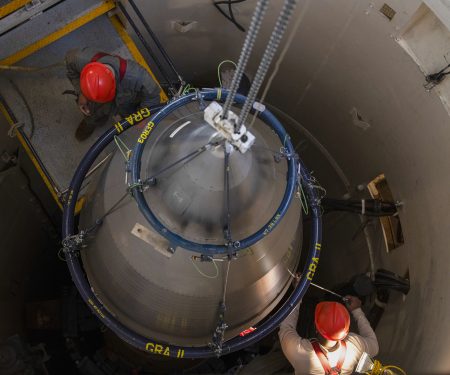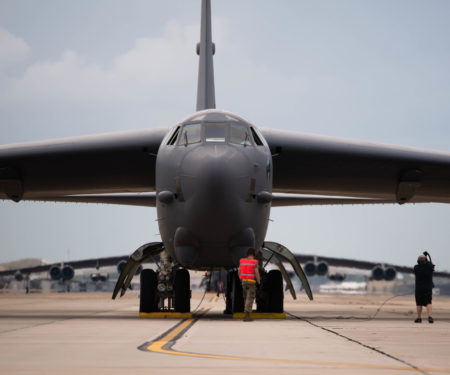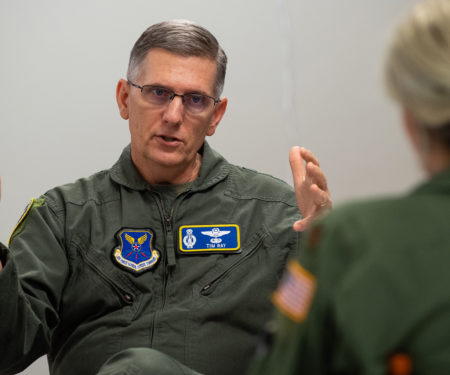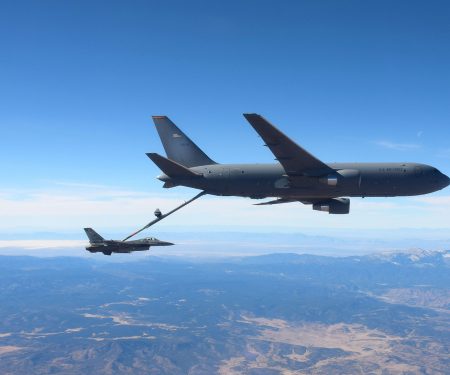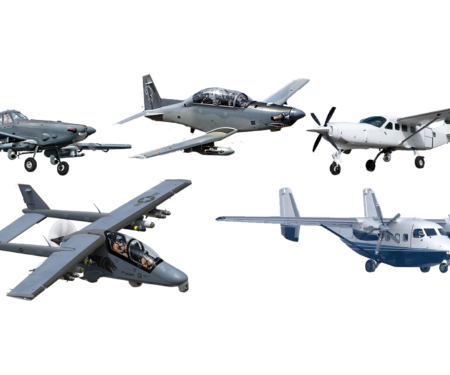Radar Sweep
Will the Cyber Mission Force Soon Receive More Personnel?
“I would anticipate that as we lay out the case, we have to look at some critical elements that will influence the future size of the cyber mission force, now 133 teams,” Gen. Paul M. Nakasone said at a House Armed Services Cyber, Innovative Technologies, and Information Systems Subcommittee hearing.
COLD FRONT: Special Operations Forces Bracing for Arctic Missions
Special operators have played a central role in the post-9/11 wars conducting direct assault missions, the most famous being the 2011 raid that killed Osama bin Laden. But unless terrorist groups set up shop in the High North, SOF will play more of a supporting role in the Arctic using a wide range of skill sets, officials and analysts say.
Space Force to Spend Years and Billions of Dollars to Convert Data into Knowledge
The U.S. Space Force plans to spend billions of dollars over the next decade to convert huge amounts of data that resides in separate systems into a digital enterprise architecture. Data is now stored in disconnected silos, and it’s difficult to analyze it and make sense of it, Col. Jennifer M. Krolikowski, senior materiel leader for space command and control at the Space and Missile Systems Center, told SpaceNews.
SPONSORED: How Tech Is Turning JADC2 from Concept to Reality
In the Pentagon’s vision, Joint All-Domain Command and Control (JADC2) will connect sensor data, powerful computer processing, and artificial intelligence algorithms through a lightning-fast, resilient network. That capability will give U.S. forces an edge so decisive it could deter aggressors from even contemplating future conflicts. Retired Air Force Col. David Stickley, a former senior leader at the Defense Information Systems Agency and now an executive at Dell Technologies, sees a new convergence taking place today as the various capabilities needed to enable JADC2 and the Air Force’s Advanced Battle Management System come of age.
OPINION: Why the U.S. Needs a Space Czar
“… The challenges of our era—the accelerating privatization, commercialization, and militarization of space—require better coordination not only across the U.S. government, but between America and the world. Retaining the White House’s National Space Council is an important step, but we can increase its executive secretary’s bureaucratic and diplomatic clout to make it more effective. A small change and a smart appointment can help. It’s time for a Space Czar,” write Julia Circa, Lauren Kahn, and Christian Ruhl of the Perry World House at the University of Pennsylvania.
Lawmakers Propose $200 Million for New Guard Quick Reaction Force to Aid Capitol Security
The District of Columbia Air National Guard would receive $200 million to set up a quick reaction force of service members prepared to respond to any violence or threats on Capitol Hill under a $1.9 billion security supplemental unveiled by House leaders on May 14. The package also includes nearly $521 million for unanticipated pay and operations cost for the still- ongoing Guard deployment to protect Congress in the wake of the attack on the Capitol building in January.
Air Combat Command to Update Force Generation Model; Gen. Mark Kelly Quoted
The Air Combat Command (ACC) has formed a task force that will create a new model to prepare U.S. Airmen for strategic missions in highly contested environments, organize aviation units for high- end operations, and train forces in the "agile" combat processes. ACC said its Campaign Plan working group will primarily focus on developing a two- year force generation cycle that will consist of four six-month readiness phases.
OPINION: Bring Back the Air Force Battle Lab
“The U.S. Air Force has established a new, innovative organization whose charter is to ‘create an environment where innovative ideas are rapidly harvested and evaluated, leading to swift fielding of proven concepts,’ with a mission to ‘rapidly identify and prove the worth of innovative ideas, which improve the ability of the Air Force to execute its core competencies and joint warfighting.’ This wasn’t 2021, though—it was 1997. This was the Air Force Battle Lab. Despite some notable successes, the organization was shuttered in 2007 to shift fiscal support to ground operations in Iraq and Afghanistan. In the time since the battle lab became an obscure historical footnote, the Air Force has launched several innovation efforts and organizations, but none has filled the void left by the battle lab,” writes Mike Benitez, an Active-duty officer with over two decades of service in the U.S. Marine Corps and U.S. Air Force.
Fleet Decentralization Focus for AF Budget Beyond 2023
A key Air Force focus for the 2023-2027 budget will be “agile combat employment,” and the problem of contested logistics in globalized warfare, says Lt. Gen. David Nahom, service deputy chief of staff for plans and programs. “As we look forward in our investment, you’re gonna hear us spend a lot of time on what we’re calling ‘agile combat employment,’ or ACE: the ability to operate away from established runways, operate in a manner that makes difficult problems for our adversaries.”
Hundreds of Airmen Opt to Leave Air Force Amid Sky-high Retention
Hundreds of Airmen have decided to leave the Air Force as part of the service’s effort to rebalance a glut of troops who stayed in longer than expected amid the coronavirus pandemic. About six months after it announced record retention rates, at least in part spurred by economic uncertainty, the Air Force said on May 13 it will end its voluntary force management initiatives May 27.
Parsons Wins $185 Million Space Force Contract for Technology Services
Parsons Corp. announced May 17 it has won a $185 million U.S. Space Force contract for information technology and engineering services. The contract is from the Space and Missile Systems Center Special Programs Directorate in Los Angeles, California, that oversees classified projects such as space surveillance sensors and systems to defend satellites.
A Squadron is Born: USAFE Warfare Center Det 3 Polygone Becomes 19th Electronic Warfare Squadron
The United States Air Forces in Europe-Air Forces Africa Warfare Center Detachment 3, Polygone, became the 19th Electronic Warfare Squadron at Polygone, Bann, Germany, on May 11. As a trinational detachment specializing in training U.S. service members and NATO partners to effectively support transient fourth- and fifth-generation aircraft, the unit became a squadron to increase manning, resources, and further their combat readiness.
Rubio Wants 'UFO Sightings' to be Registered, Taken Seriously
Sen. Marco Rubio (R-Florida) said in a new interview that elected officials need to learn more about UFOs and take the threat they pose seriously. “There’s a stigma on Capitol Hill. Some of my colleagues are very interested in this topic, and some kind of giggle when you bring it up,” Rubio told CBS's "60 Minutes." "But I don't think we can allow the stigma to keep us from having an answer to a very fundamental question."
